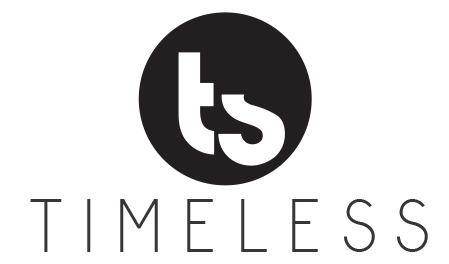Long-term care: It’s the elephant in the room for many retirees. According to the U.S. Department of Health and Human Services, today’s 65-year-olds have a 70 percent chance of needing long-term care at some point in the future.1
Long-term care is extended assistance with basic daily living activities such as eating, bathing, dressing and mobility. It’s often provided in a facility, but it can also be offered in the home via a private nurse or home health aide.
According to a 2017 Genworth study, the average cost of a room in an assisted living facility is $3,750 per month. In-home care may actually be more costly. The average monthly cost of a full-time home health aide is more than $4,000 per month.2 If you aggregate those costs over several years, it’s easy to see how long-term care can quickly deplete your retirement assets.
Compounding the challenge is the fact that Medicare usually doesn’t cover long-term care expenses. It may partially cover a stay in a facility that’s related to a surgery or other medical procedure. However, that coverage is often very temporary. Medicaid will usually only cover long-term care if you have few assets and little income.
Fortunately, you have options available. If you plan ahead, you can develop and implement a strategy to fund your long-term care needs. It may make sense to include an annuity as part of those plans. Below are a few ways in which an annuity can help you pay for long-term care:
Nursing Home Waiver
One of the most prevalent criticisms of annuities is that they don’t offer liquidity to help pay for emergencies. This criticism is usually sparked by surrender charges, which are a common element of annuity and life insurance contracts.
A surrender charge is a penalty you pay if you withdraw more than a certain amount from your contract in any given year. Surrender penalties are in place for a certain number of years determined before signing the contract of an annuity. Surrender periods can last from three to even ten or more years. After that period is up, there are no more surrender periods.
However, many annuities offer something called a nursing home waiver. This feature gives you the opportunity to access your contract without paying a surrender penalty if you have to stay in a nursing home or an assisted living facility. You gain instant access to your contract so you can use your funds to cover your long-term care needs.
Annuitization
One of the primary benefits of an annuity is that it can generate a reliable income stream that’s guaranteed for life. This is done through a process called annuitization. Essentially, you ask the annuity company to convert your assets into a lifetime income stream. This can be done when you open the contract or after you’ve owned the policy for months or even years.
To calculate your payment amount, the annuity company will consider the amount of assets, your life expectancy and other factors, such as prevailing interest rates. It will then pay you a fixed amount every month for the rest of your life. The payment is guaranteed, no matter how long you live.
This kind of income certainty can be helpful for any retiree, but it can be especially helpful if you need long-term care. The fixed payment gives you confidence that you can continue paying for your facility or your home health aide.
There are also instances in which annuitized income doesn’t count as a Medicaid asset. That means you may be able to receive your annuity income and also receive Medicaid benefits to pay for your care. However, these rules are complex. It’s wise to consult with a financial professional before embarking on this strategy.
Annuity-LTC Hybrids
Finally, many annuity providers have recognized the need for long-term care strategies. They have responded by introducing annuity-LTC hybrid policies. These contracts provide a blend of long-term care insurance and annuity income.
You fund the policy with a lump sum, just like you would with any other annuity contract. If you ever need care, the long-term care component can be utilized. It pays for some or all of your care, depending on the terms of your policy. If you don’t need care, you can use the annuity to provide retirement income or as a legacy for your beneficiaries.
Ready to develop your long-term care strategy? Let’s talk about it. Contact us today at Timeless Solutions. We can help you analyze your needs and develop a plan. Let’s connect soon and start the conversation.
1https://longtermcare.acl.gov/the-basics/how-much-care-will-you-need.html
2https://www.genworth.com/about-us/industry-expertise/cost-of-care.html
Licensed Insurance Professional. This information is designed to provide a general overview with regard to the subject matter covered and is not state specific. The authors, publisher and host are not providing legal, accounting or specific advice for your situation. By providing your information, you give consent to be contacted about the possible sale of an insurance or annuity product. This information has been provided by a Licensed Insurance Professional and does not necessarily represent the views of the presenting insurance professional. The statements and opinions expressed are those of the author and are subject to change at any time. All information is believed to be from reliable sources; however, presenting insurance professional makes no representation as to its completeness or accuracy. This material has been prepared for informational and educational purposes only. It is not intended to provide, and should not be relied upon for, accounting, legal, tax or investment advice. This information has been provided by a Licensed Insurance Professional and is not sponsored or endorsed by the Social Security Administration or any government agency.
Annuities are insurance products backed by the claims-paying ability of the issuing company; they are not FDIC insured; are not obligations or deposits of, and are not guaranteed or underwritten by any bank, savings and loan or credit union or its affiliates; are unrelated to and not a condition of the provision or term of any banking service or activity
Guaranteed lifetime income available through annuitization or the purchase of an optional lifetime income rider, a benefit for which an annual premium is charged. Annuities are long-term, tax-deferred vehicles designed for retirement and contain some limitations.
17507 – 2018/3/26

